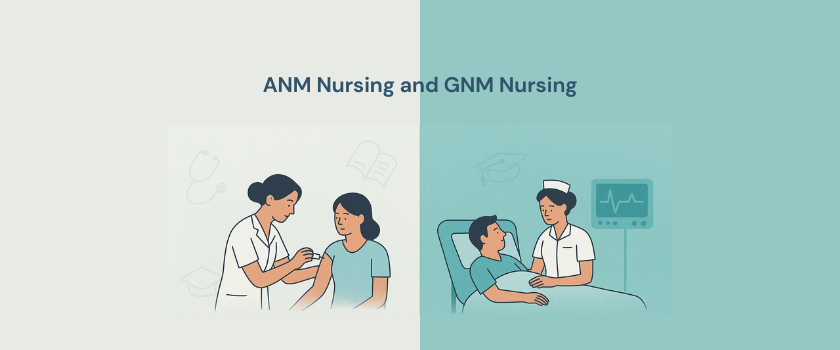Introduction
Choosing between ANM (Auxiliary Nursing Midwifery) and GNM (General Nursing Midwifery) can be a tough decision. Both courses lead to rewarding careers in the healthcare sector, but they cater to different professional goals and skill sets. Understanding the difference between ANM and GNM will help you make an informed decision based on your interests and career ambitions. At Srirvatsa Education, we provide detailed guidance to help you choose the right course for a successful career in nursing.
Duration of the Course
ANM Nursing: This course generally spans 2 years, offering a quicker path to enter the nursing field.
GNM Nursing: A more in-depth course, lasting 3 years plus an additional 6-month internship. It’s ideal for those ready to commit more time for comprehensive learning and skills development.
Course Curriculum
ANM Nursing: The curriculum is focused on basic healthcare, maternal and child health, midwifery, and community health services. It’s a perfect fit for those who want to make an immediate impact on community health.
GNM Nursing: Offers a wider range of subjects including advanced nursing care, anatomy, physiology, pediatric nursing, psychiatric care, medical-surgical nursing, and more. GNM nursing equips you for a wider variety of clinical settings.
Scope and Responsibilities
ANM Nursing: ANM professionals primarily work in community health settings. Their responsibilities include basic health check-ups, immunizations, maternal and child health, and educating the community about hygiene and nutrition.
GNM Nursing: GNM nurses have broader responsibilities and are equipped to work in hospitals and clinical settings. They provide specialized patient care, manage medical procedures, and often work with advanced medical technologies.
Career Opportunities
ANM Nursing: With an ANM certification, you’ll find opportunities in rural and urban health centers, non-governmental organizations (NGOs), community healthcare initiatives, and health awareness programs.
GNM Nursing: GNM graduates can work in hospitals, clinics, specialty centers, and are also eligible for advanced roles such as nurse supervisor or clinical educator. The scope is wider with opportunities to specialize in different areas of healthcare.
Higher Education and Career Growth
ANM Nursing: After completing an ANM course, you can further your education with programs like GNM or B.Sc. Nursing for better career growth and job opportunities.
GNM Nursing: GNM provides a solid foundation for specialized courses, higher studies, and advanced nursing qualifications, including Post Basic B.Sc Nursing and other advanced nursing certifications.
Job Roles and Salaries
ANM Nursing: ANM professionals typically begin their careers in entry-level roles with steady earnings. The job is ideal for those who are looking to start working quickly while gaining practical experience.
GNM Nursing: GNM professionals earn a higher starting salary due to their extensive clinical skills and the ability to handle complex healthcare situations.
Personal and Career Goals
When deciding between ANM and GNM, consider your personal interests, financial situation, and how quickly you want to start your career. If you’re eager to enter the healthcare field fast and focus on community-based roles, ANM may be the right choice. However, if you’re interested in more advanced clinical care and broader job opportunities, GNM is a better option.
Conclusion
Understanding the difference between ANM and GNM is crucial in making the right decision for your career in nursing. Both paths have their unique benefits and cater to different professional goals. At Srirvatsa Education, we help guide students through the decision-making process and ensure they find the course that aligns with their career aspirations. Evaluate your interests and future goals to determine the best fit for your nursing journey.

